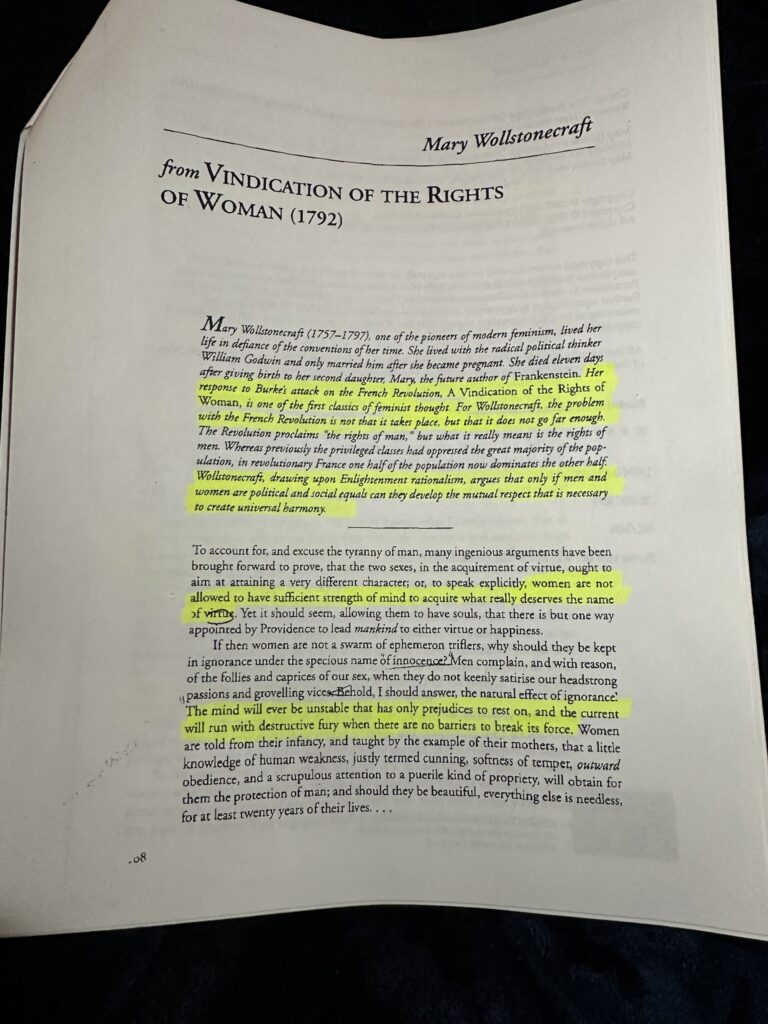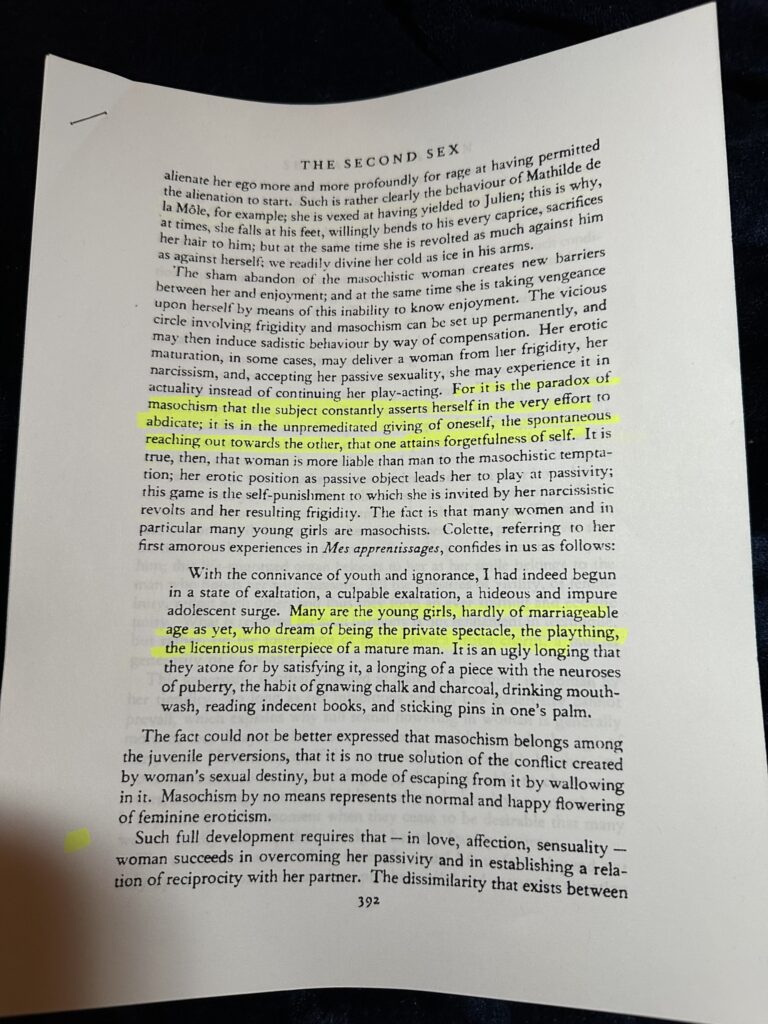February 23 2025
Discussion question from my Women in Literature class. Did I mention how much I love these classes?!
Although Wollstonecraft and de Beauvoir write from the past, are their insights valuable today? How are they anticipating the model of the ISA and “ interpellation” for example?
Wollstonecraft and de Beauvoir’s writings are absolutely valuable insights today. Unfortunately, they are becoming more relevant with each passing day. It’s as if the human race has collectively entered a time machine traveling back to the era of first wave feminism.
Wollstonecraft argued that if men and women are political and social equals, they can develop the mutual respect that is necessary to create universal harmony. I wonder what she would think of how far we’ve come and that we have still not reached this place of mutual respect. de Beauvoir’s point that men set themselves up as subjects, setting themselves apart, regarding the other (women) as a thing to be taken, gets at one of the reasons that we have not attained mutual respect. Women are “othered” by men, making it impossible to reach this goal.
Both women write about how women come into subjecthood due to social constructs (ISAs). de Beauvoir writes that from the time they are young, women are taught to forget themselves, to dream about becoming a plaything for a mature man. She further writes that women were taught to regard themselves as objects, to see themselves as prey. Wollstonecraft writes that men were taught to secure the good conduct of women by attempting to keep them always in a state of childhood. I’m inspired by the fire both of these women spit! Wollstonecraft goes so far as to say that women might as well not have been born if society would have us always be in a state of childhood. All of this stemmed from schools, religion, media, families and laws.
Still relevant today and further examples of social constructs, Wollstonecraft compares women to young military men who have been taught to please, and they only live to please. She questions why the men are still considered superior to to men. There was so much I appreciated in this excerpt, but was especially moved by this quote, “Educate women like men,” says Rousseau, “and the more they resemble our sex the less power will they have over us.” “This is the very point I aim at. I do not wish them to have power over men; but over themselves.” Wollstonecraft. This is perhaps a most important point and the root of ISAs, and why the feminist fight for equality and equity has moved slowly, and appears to be reversing.


